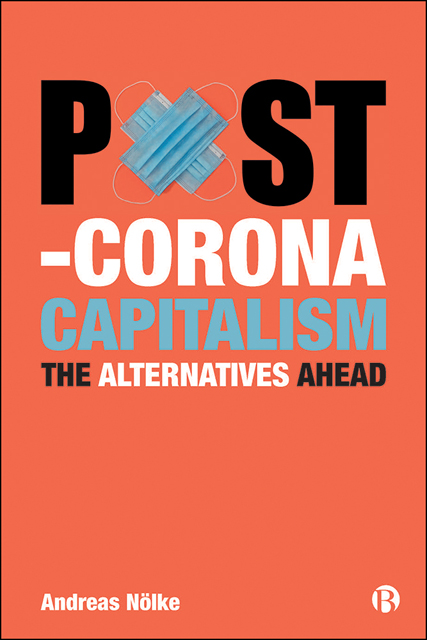Book contents
- Frontmatter
- Dedication
- Contents
- List of Abbreviations
- Acknowledgements
- Preface
- 1 Introduction: Confronting a Multidimensional Crisis of Capitalism
- Part I Capitalism and Society
- Part II Domestic Institutions of Capitalism on the Demand Side
- Part III Domestic Institutions of Capitalism on the Supply Side
- Part IV The International Institutions of Capitalism
- Part V Anthropocene Capitalism
- Part VI Geo-economic Shifts in Global Capitalism
- Part VII Ideologies in Contemporary Capitalism
- References
- Index
28 - EU Economic Governance: Erosion or Integration?
Published online by Cambridge University Press: 13 October 2022
- Frontmatter
- Dedication
- Contents
- List of Abbreviations
- Acknowledgements
- Preface
- 1 Introduction: Confronting a Multidimensional Crisis of Capitalism
- Part I Capitalism and Society
- Part II Domestic Institutions of Capitalism on the Demand Side
- Part III Domestic Institutions of Capitalism on the Supply Side
- Part IV The International Institutions of Capitalism
- Part V Anthropocene Capitalism
- Part VI Geo-economic Shifts in Global Capitalism
- Part VII Ideologies in Contemporary Capitalism
- References
- Index
Summary
The coronavirus pandemic was a novel challenge for the EU. The purpose of combatting a pandemic was not part of its process of evolution. Still, many observers – both inside and outside the EU – assume that it should be able to play a major role in fighting the pandemic and the subsequent recession. The core question with regard to the EU – as always – is whether it leads to more European integration or rather to an erosion of the Union.
EU economic integration and International Political Economy scholarship
Over the decades, European Union Studies has emerged as a major research field of its own, with a multitude of specialized journals and academic associations. Still, from an International Political Economy perspective the core question still is to explain why countries are willing to pool a substantial amount of sovereignty in order to tackle common challenges (Balaam and Dillman, 2014: 295–7; Ravenhill, 2020: 159–61). The EU is by far the most impressive case of sovereignty pooling in the global political economy. Whereas the European Community during the 1950s was a group of completely sovereign states with limited cooperation in selected issue areas, the EU during the 2020s not only encompasses nearly all issue areas, but also holds supranational competences over many fields of economic policymaking.
To explain this development is the task of the classical theories of European integration, although the latter are only a small part of EU scholarship. Again, there is a whole range of theories that seek to explain why EU sometimes moved on with allocating new powers to Brussels and why they sometimes failed to do so, notably including theories of Critical Political Economy (van Apeldoorn and Horn, 2018). Still, the most widely used
distinction still is between intergovernmental and neo-functionalist theories of European integration. Whereas the former highlights the importance of the preferences of the (powerful) EU member states, the latter argue in favour of the independent agency of European-level actors such as the Commission (or the ECB) and the driving force of transnational societal actors (mainly business), triggered by the need to solve cross-border problems.
- Type
- Chapter
- Information
- Post-Corona CapitalismThe Alternatives Ahead, pp. 174 - 181Publisher: Bristol University PressPrint publication year: 2022



